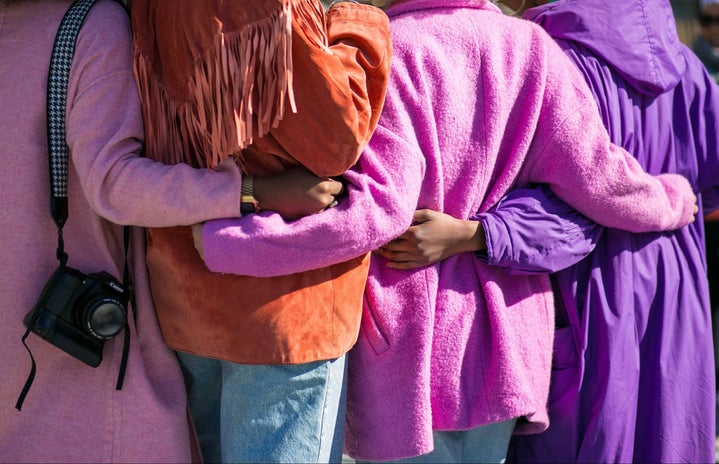Every 73 seconds, an American is sexually assaulted.
At rates this high, conversations about how to help and comfort victims are extremely necessary. During sexual education class, we were mainly taught how to have safe and protected sex. However, little to none are educated on what sexual assault is, how to prevent it and how to support victims.
On average, there are 433,648 victims (ages 12 or older) of rape and sexual assault each year in the United States. Undeniably, educating ourselves and the community around us on how to support survivors is unprecedented and long-overdue.
When comforting and supporting sexual abuse victims, you may want to pursue the guidelines below. The following tips were curated from research at the Rainn institute, and the author’s personal experience as a sexual assault survivor.

- Create a comfortable and safe space for survivors
-
Coming foward with sexual abuse stories can be an extremely stresfull and frightening process.
Make sure the survivor knows that you recognize that. Quotes such as “I understand how hard this is for you,” “I am proud of you for coming forward” can communicate your awareness.
Acknowledge the fact that they trusted you enough to share such a traumatic experience. A simple “Thank you for trusting me” can create a safe and comfortable environment for the victim. Moreover, do not be inquisitive or ask too many details. One of the outcomes of trauma is memory loss. Therefore, survivors may not remember certain aspects of their assault. It is important to highlight that a lack of detailing does not make one’s experience less valid, nor less real.
Your role in that situation is not of an investigator, but of a supportive, reliable individual. Over inquisition may lead the victim to feel as if you are doubting the validity of their experience. This will ultimately make survivors uncomfortable and less prone to share their story.
- Avoid victim-blaming
-
A common and subtle way in which individuals tend to victim-blame is by defending the abuser.
When comforting survivors, you should restrain from saying the following quotes in relation to the perpetrator: “But they are my friend,” “I doubt they would do that,” or “that does not sound like something they would do.”These phrases can trigger feelings of self-blame and survivors may think that they “asked for it.”
Instead, say “You did not deserve this,” “What happened was not your fault.” Feelings of confusion and doubt are common after an assault, and these simple reminders can help the survivor understand and come to terms with the situation.
Every victim processes what happened at their own pace. Some survivors may take a short amount of time to recover from abuse. For others, however, the process of overcoming trauma may last for years. Avoid phrases such as “You’ve been acting like this for a while now,” or “How much longer will you feel this way?”
As a survivor, listening to those quotes was extremely detrimental to my mental health, and even delayed the recovery process. Alternatively, say “Take all the time you need” or “I understand how difficult it is to overcome what you went through.”
- Provide continued support
-
Check in periodically with the victim. Make it clear that you still care for them regardless of how long the recovery period may take. Personally, having someone to rely on is crucial when overcoming sexual abuse.
Every victim copes with the outcomes of sexual abuse differently, and even if you follow the guidelines mentioned in this article, it still may not be enough.
Survivors may need support from a professional who is equipped to deal with the situation. In that case, they should contact their local sexual assault service provider for advice on medical care and laws surrounding sexual assault.
Victims can also seek help through the National Sexual Assault Hotline at 1-800-656-HOPE or they can also visit the Online Hotline, y en español a rainn.org/es.
Photos: Her Campus Media



